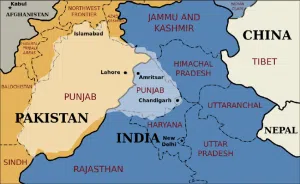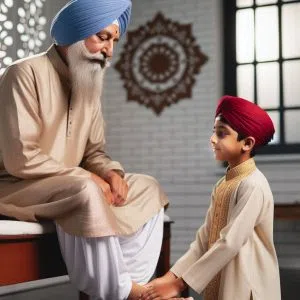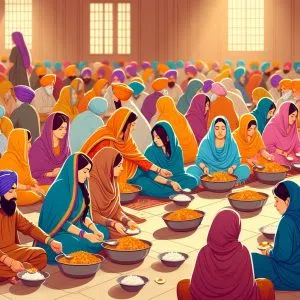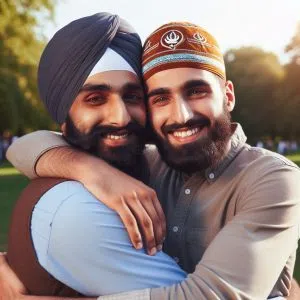India and Pakistan have rich cultural traditions and legacies since they share a common past. India’s many festivals and Pakistan’s artistic culture and warm greetings show a rich tradition that unites the two countries despite their political differences.
 Punjab, renowned for its rich cultures and fertile soils, sits at the heart of our common history. The majority of Punjab is in Pakistan, although a small portion is in India. With traditions and beliefs upheld on both sides, Punjab is a representation of unity across divides. Punjabis are renowned for their kindness, stubbornness, and tightly connected community.
Punjab, renowned for its rich cultures and fertile soils, sits at the heart of our common history. The majority of Punjab is in Pakistan, although a small portion is in India. With traditions and beliefs upheld on both sides, Punjab is a representation of unity across divides. Punjabis are renowned for their kindness, stubbornness, and tightly connected community.
Punjab still acts as a cultural bridge connecting India and Pakistan, showcasing how a shared history can unite people in situations of conflict.

Punjabis are well known for their remarkable mehmaan-nawazi (hospitality), which is a sincere custom rather than only being polite. The best cuisine is served, guests are welcomed as members of the family, and they are greeted with love.
Whether in the busy streets of Lahore or the peaceful villages close to Amritsar, hospitality is a fundamental part of Punjabi culture. It reflects the idea that helping others is a honour and a duty, building lifelong, treasured relationships.
The Tradition of Gifting

In Punjabi tradition, giving gifts is a way to show respect, love, and appreciation. A gift expresses gratitude without words. Whether for a wedding, a celebration, or just to say thank you, the gift represents the bond between the giver and the receiver. It’s understood that the gift comes from the heart, as a genuine gesture of admiration.
In Punjabi tradition, giving a gift does not require a specific occasion. Presents are offered out of a sense of timing, as a gesture of kindness.
In India and Pakistan, this tradition fosters connections and provides a significant means to show love.
 Respect for Elders and Family Ethics
Respect for Elders and Family Ethics
The foundation of Punjabi culture lies in family, and honouring elders is a fundamental belief. The younger generation in Indian Punjab and Pakistani Punjab seek guidance and blessings from their elders, whether through traditional customs like touching their feet or involving them in significant life choices.
This honor guarantees that customs and morals are transmitted, maintaining a feeling of connection and mutual obligation among family members. It demonstrates the Punjabi dedication to togetherness and the lasting power of family ties.
 The Essence of Resilience and Service
The Essence of Resilience and Service
Punjab has endured numerous hardships throughout history, including invasions and partition. Nonetheless, its people have consistently risen with tenacity and strength. This resilience is demonstrated by their hard work and capacity to rebuild communities with optimism and perseverance.
The notion of seva (selfless service) emphasizes this power. From langar (community kitchens) that feed millions to gestures of goodwill for neighbours and strangers alike, Punjabis embody service as a basic cultural value.
Punjabi culture, highlighting hospitality, gift-giving, respect, and service, serves as a strong symbol of our common humanity. Even though they are separated by borders, the people of Punjab still uphold and celebrate their shared heritage, showing that culture has the power to unite where politics creates division.
The principles that Punjabis hold dear not only enhance their lives but also act as a guiding light for promoting unity. Their customs and morals serve as a reminder that love, respect, and unity go beyond limits, preserving the essence of Punjab on either side of the border.





